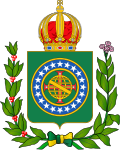Rio Branco Law
Rio Branco Law is a topic that has captured the attention of millions of people around the world. Since its emergence, it has aroused great interest and has been the subject of numerous debates and discussions. In this article, we will thoroughly explore the most relevant aspects related to Rio Branco Law, from its origin to its implications today. We will analyze its impact on society, its evolution over time and possible future perspectives. In addition, we will examine the various opinions and points of view of experts on the subject, with the aim of providing a comprehensive and detailed vision that allows our readers to fully understand the importance and relevance of Rio Branco Law today.
This article needs additional citations for verification. (January 2021) |
| Rio Branco Law | |
|---|---|
 Rio Branco Law, Brazilian National Archives | |
| General Assembly of the Empire of Brazil | |
| |
| Citation | Law No. 2,040 of 28 September 1871 |
| Territorial extent | Empire of Brazil |
| Enacted by | General Assembly of the Empire of Brazil |
| Enacted | 28 September 1871 |
| Signed by | Isabel, Princess Imperial of Brazil |
| Summary | |
| Declares the children of slave women born since the date of this law to be free, the slaves of the Nation and others free, and provides for the upbringing and treatment of those minor children and the annual liberation of slaves. | |
The Rio Branco law (Portuguese: Lei Rio Branco), also known as the Law of Free Birth (Lei do Ventre Livre), named after its champion, prime minister José Paranhos, Viscount of Rio Branco, was passed by the Brazilian Parliament on 28 September 1871. It was intended to provide freedom to all newborn children of slaves, and slaves of the state or crown. Slaveholders of the children's parents were to provide care for the children until the age of 21, or turn them over to the state in return for monetary compensation.
The law was the beginning of an abolition movement in Brazil, but it turned out to be more of a legal loophole than a radical measure that led to viable progress. Only a few people were freed under the law, while more than one million people continued to be held as slaves throughout Brazil. This law had more of an influence in the northern part of the country, which was leaning further toward wage rather than slave labor.
Many of those freed under the Rio Branco law migrated to the north to work for wages on the plantations. The Rio Branco law was the first step toward abolition of slavery in Brazil. It was ultimately abolished on 13 May 1888 with the adoption of the Lei Áurea.
See also
References
- ^ "Lei do Ventre Livre". mapa.an.gov.br. Retrieved 2023-09-26.
